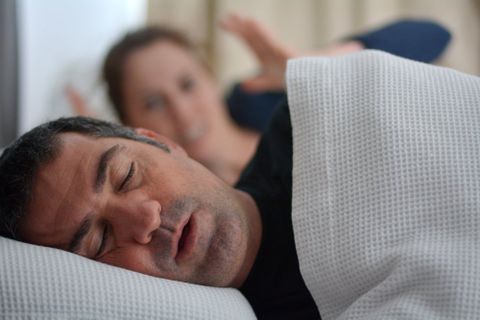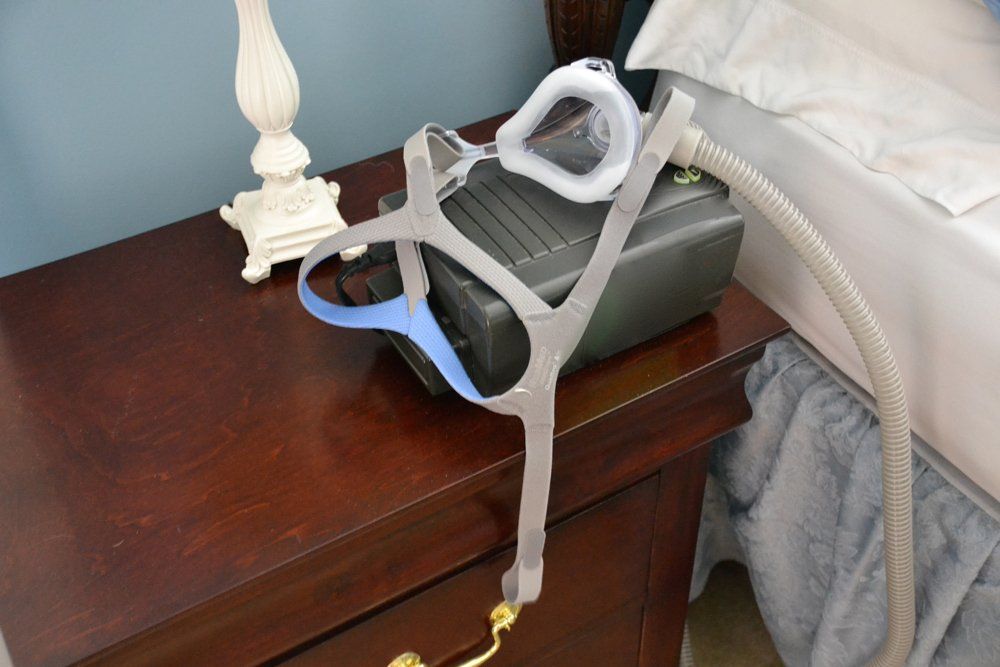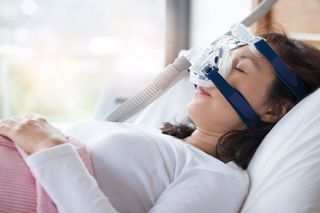Sleep Apnea Services in Lutz, Florida
Sleep apnea can be a life-threatening sleep disorder distinguished by repeated stops in breathing while sleeping. The expression sleep apnea is derived from the Greek etymology saying "without breath." Breathing gaps can last from a few seconds to minutes and occur as often as 30 times or more per hour. Continuous disrupted breathing causes an irregularity in the carbon dioxide and oxygen levels in the bloodstream. Not enough carbon dioxide is leaving, and not enough oxygen is entering the body. The brain senses this irregularity and sends information to the body to wake up to restart the breathing process. Individuals with sleep apnea will partially wake up as they try to breathe, and this is often followed by noisy snoring or choking responses. Because a person with sleep apnea doesn't always fully awake during their experiences, they are often oblivious to the fact that they have a sleeping disorder, and their sleeping disorder can remain undiagnosed.
Types Of Sleep Apnea
There are two types of sleep apnea; central sleep apnea happens when the brain misses sending essential signals to the breathing muscles, and obstructive sleep apnea occurs when air isn't able to flow through the mouth or nose even though the body is still trying to breathe. Obstructive sleep apnea is far more common and is often treatable by a dentist.
Signs of obstructive sleep apnea include repeatedly waking up during the night, waking up gasping, painful early morning headaches, daytime sleepiness, and insomnia. Luckily, the dentist has the expertise and technology to treat sleep apnea in various ways.
Reasons For Treating Sleep Apnea
It is crucial to seek medical care if sleep apnea is suspected. A sufferer can stop breathing numerous times per hour, which can turn into a life-threatening situation. Obstructive sleep apnea happens when the soft tissue at the back of the patient's throat drops into the airway. The tongue then bends towards the end of the throat, which compresses the blockage and limits oxygen from entering the lungs.
The problem gets worse when the chest region, abdomen, and diaphragm fight for oxygen. The attempts they make to obtain necessary oxygen only cause additional tightening of the blockage. The patient must awake from deep sleep to move the tongue and eliminate the airway's soft tissue.
Because sleep apnea makes carbon dioxide levels increase in the blood and oxygen levels to decrease, the heart has to pump faster and harder to counterbalance the lack of oxygen. Sleep apnea sufferers can technically "die" multiple times each night. Sleep apnea has been associated with many severe heart-related problems and should be examined by the dentist at the first opportunity.
Sleep Apnea Treatment
Initially, your dentist will want to do testing to study, diagnose, and pinpoint a proper treatment. A meeting with the patient's primary care doctor and a sleep study is the first step in the treatment. The sleep study results will help the dentist and physician decide the best treatment options to give. The many different treatment choices depend primarily on the patient's exact diagnosis and health. The dentist may advise the patient to stop some habits that worsen sleep apnea, such as smoking, drinking alcohol, and tranquilizer use.
Continuous Positive Airway Pressure (CPAP) is commonly used to keep the patient's airways open while sleeping, but some less intrusive alternatives are available. Oral dental appliances that gently tease the lower jaw forward efficiently prevent the tongue from obstructing the central air passage. These dental appliances are soft, comfortable to wear, and often help patients avoid undesired surgeries.
Contact our office today at 813-949-3211 to schedule a sleep apnea consultation.








